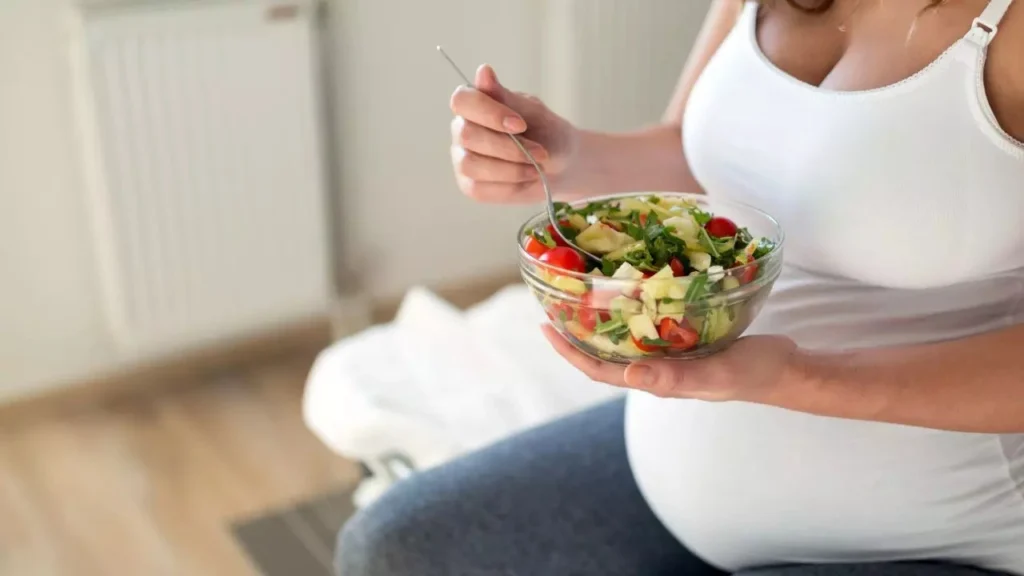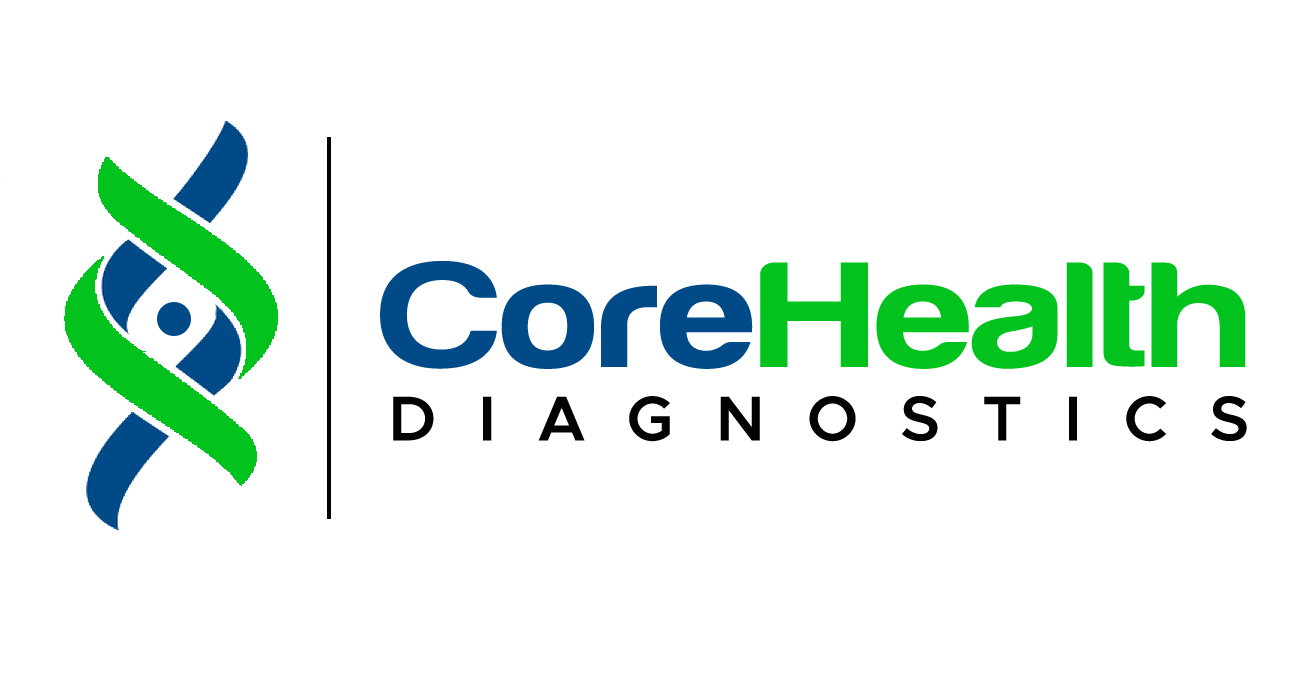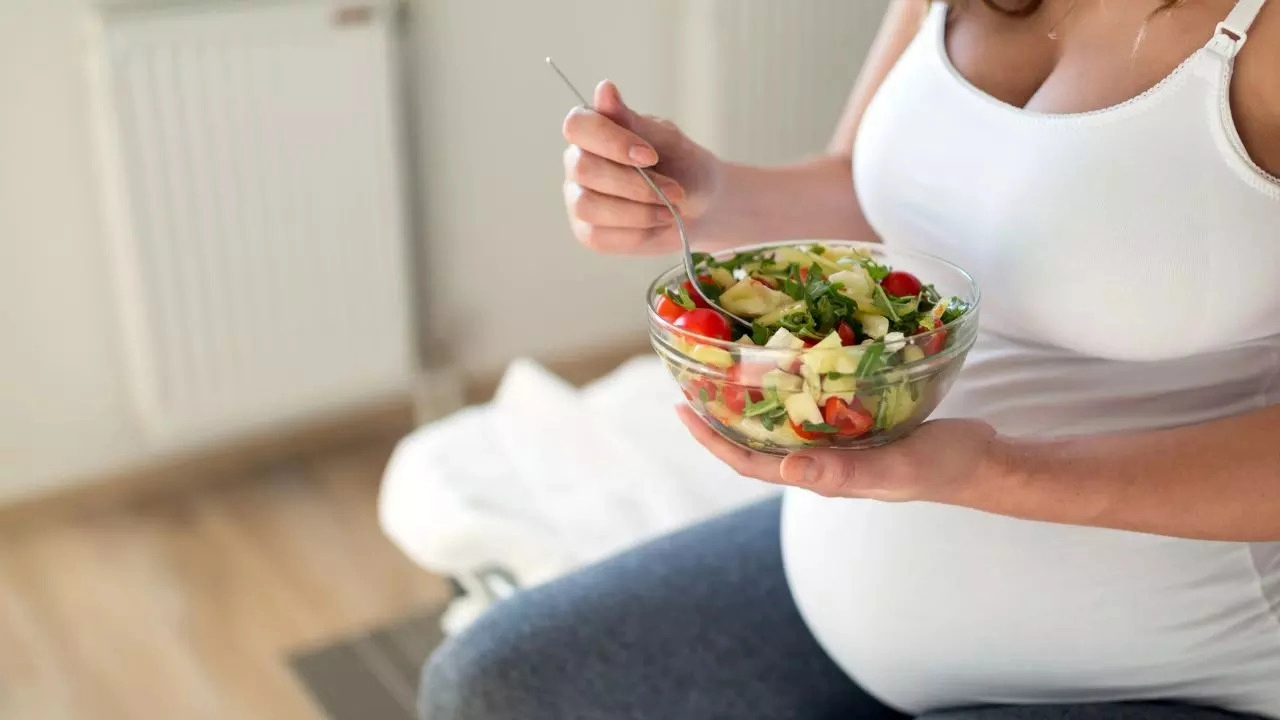During pregnancy, a woman’s body needs extra nutrients to support her own health and the development of the baby. Eating the right foods is essential for both mother and child. In this guide, we will discuss the top nutritional needs for pregnant women, explaining what each nutrient does and why it is important.

1. Folic Acid (Folate)
Folic acid, also known as folate, is one of the most important nutrients during pregnancy. It helps prevent birth defects in the baby’s brain and spine, known as neural tube defects.
How Much You Need:
Pregnant women need about 400-600 micrograms of folic acid daily.
Sources of Folic Acid:
- Leafy green vegetables like spinach
- Fortified cereals
- Oranges
- Beans
- Whole grains
Tip:
Taking a folic acid supplement can help make sure you get enough of this important nutrient.
2. Iron
Iron is essential for making more blood to supply oxygen to the baby. Pregnant women need more iron because their bodies are working harder to keep both mother and baby healthy.
How Much You Need:
You need about 27 milligrams of iron daily during pregnancy.
Sources of Iron:
- Lean red meat
- Poultry
- Fish
- Beans and lentils
- Spinach and other dark leafy greens
- Iron-fortified cereals
Tip:
Eating vitamin C-rich foods like oranges and strawberries with iron-rich foods can help your body absorb iron better.
3. Calcium
Calcium is critical for the development of the baby’s bones and teeth. It also keeps the mother’s bones strong during pregnancy. If you don’t get enough calcium, the baby will take it from your bones, which can lead to problems later in life.
How Much You Need:
Pregnant women need about 1,000 milligrams of calcium daily.
Sources of Calcium:
- Dairy products like milk, cheese, and yogurt
- Calcium-fortified juices and cereals
- Leafy greens like kale and broccoli
- Almonds
- Tofu
Tip:
If you are lactose intolerant or don’t consume dairy, consider calcium supplements after consulting your doctor.
4. Protein
Protein helps with the growth of the baby’s tissues and organs, including the brain. It also plays a vital role in the development of the placenta, which supplies nutrients to the baby.
How Much You Need:
Pregnant women should aim for about 70-100 grams of protein daily.
Sources of Protein:
- Lean meats like chicken and turkey
- Eggs
- Dairy products like cheese and yogurt
- Beans, lentils, and peas
- Nuts and seeds
Tip:
If you are vegetarian, focus on plant-based protein sources like tofu, beans, and quinoa.
5. Omega-3 Fatty Acids
Omega-3 fatty acids, especially DHA, are important for the baby’s brain and eye development. They also help reduce the risk of premature birth.
How Much You Need:
Pregnant women should get at least 200-300 milligrams of DHA daily.
Sources of Omega-3:
- Fatty fish like salmon and sardines
- Flaxseeds
- Chia seeds
- Walnuts
- Omega-3 fortified eggs
Tip:
If you don’t eat fish, you can take fish oil or DHA supplements after consulting with your doctor.
6. Vitamin D
Vitamin D is important for calcium absorption, which helps with the baby’s bone development. It also supports the mother’s immune system and mood during pregnancy.
How Much You Need:
You need about 600 IU (International Units) of vitamin D daily during pregnancy.
Sources of Vitamin D:
- Fortified milk and cereals
- Fatty fish like salmon
- Eggs
- Sunlight exposure
Tip:
If you don’t get enough sunlight, consider a vitamin D supplement.
7. Vitamin C
Vitamin C helps with the growth of the baby’s tissues and immune system. It also boosts iron absorption, making it an essential part of a pregnant woman’s diet.
How Much You Need:
Pregnant women need about 85 milligrams of vitamin C daily.
Sources of Vitamin C:
- Oranges and other citrus fruits
- Strawberries
- Bell peppers
- Broccoli
- Kiwi
Tip:
Try to include vitamin C-rich fruits in your snacks to easily meet your daily requirement.
8. Fiber
Pregnancy can sometimes lead to digestive issues like constipation. Fiber helps maintain a healthy digestive system and prevents constipation, which is common during pregnancy.
How Much You Need:
Pregnant women should aim for about 25-30 grams of fiber daily.
Sources of Fiber:
- Whole grains like oats, brown rice, and whole wheat bread
- Fruits like apples, pears, and berries
- Vegetables like carrots, peas, and broccoli
- Beans and lentils
- Nuts and seeds
Tip:
Drink plenty of water along with fiber-rich foods to help digestion.
9. Iodine
Iodine is essential for the baby’s brain development and helps regulate the mother’s thyroid function. A lack of iodine during pregnancy can lead to developmental delays in the baby.
How Much You Need:
Pregnant women need about 220 micrograms of iodine daily.
Sources of Iodine:
- Iodized salt
- Dairy products like milk and yogurt
- Seafood
- Eggs
Tip:
Most prenatal vitamins contain iodine, but make sure to include iodized salt in your diet if you don’t consume dairy or seafood.
10. Zinc
Zinc is important for cell growth and helps support the immune system of both mother and baby. It also plays a role in the body’s ability to make DNA.
How Much You Need:
Pregnant women need about 11 milligrams of zinc daily.
Sources of Zinc:
- Meat and poultry
- Shellfish
- Beans and lentils
- Nuts and seeds
- Whole grains
Tip:
If you are vegetarian, focus on plant-based sources of zinc like beans and whole grains, but consider taking a zinc supplement if necessary.
Conclusion
Proper nutrition during pregnancy is essential for the health of both the mother and the baby. By ensuring you get enough of the nutrients mentioned above, you can help support your baby’s development and maintain your own health.
Remember to consult with your doctor about your diet and consider prenatal vitamins if needed. Eating a well-balanced, nutrient-rich diet will give your baby the best start in life while keeping you strong and healthy throughout your pregnancy




